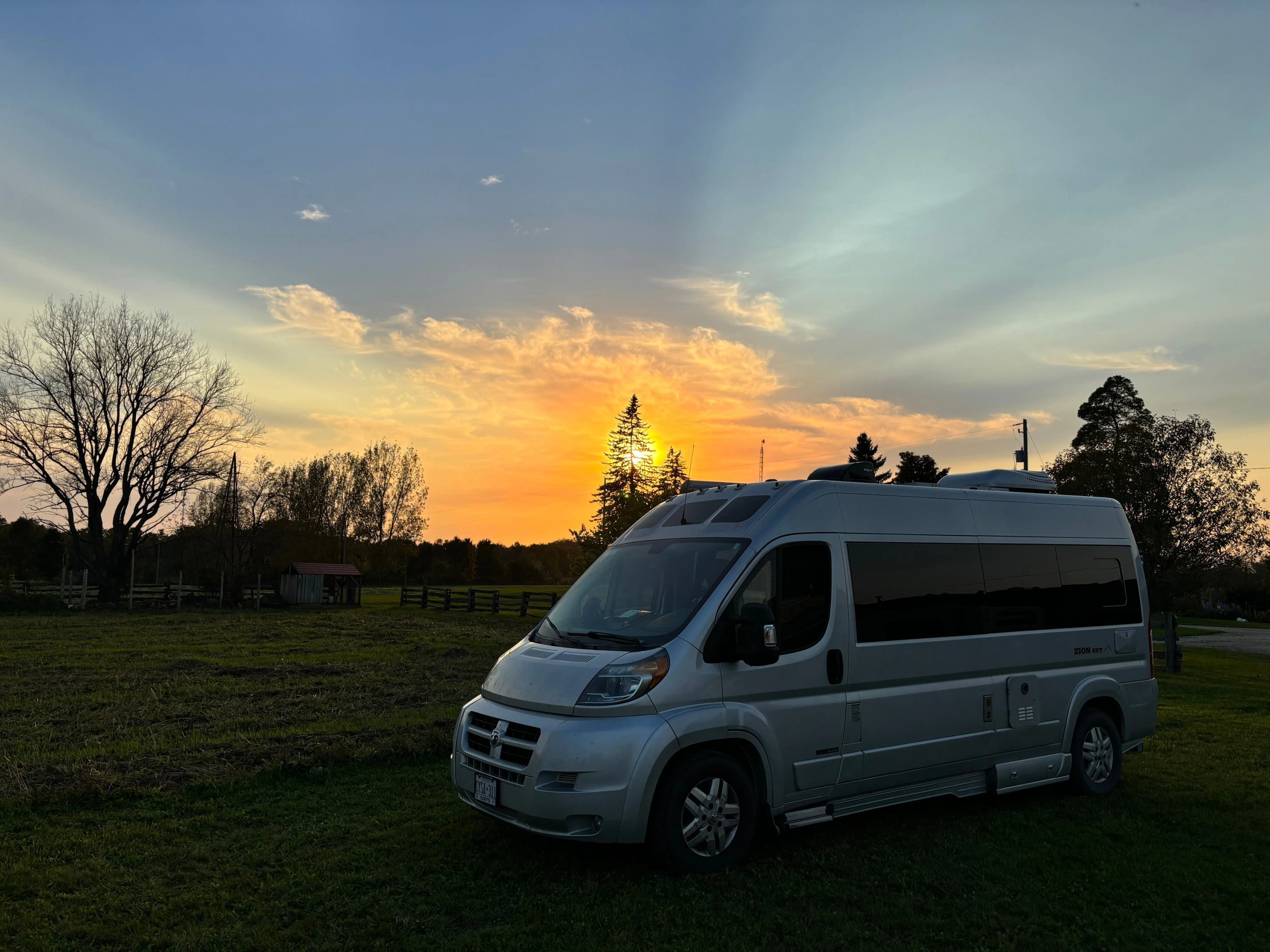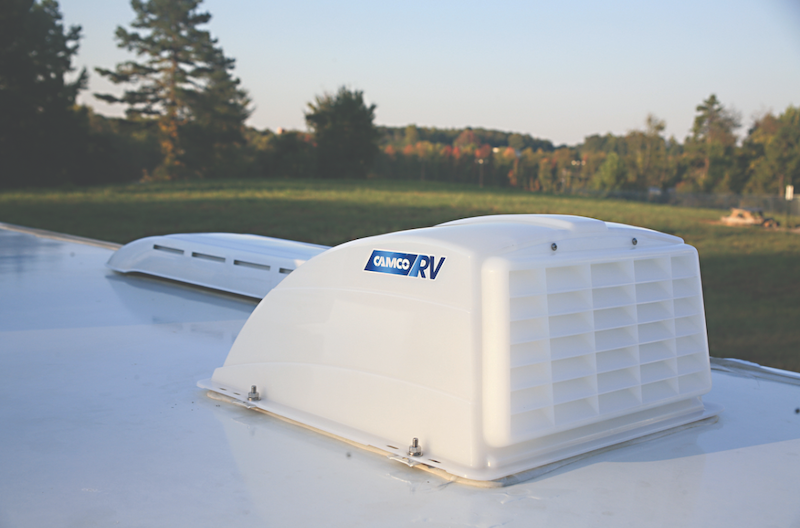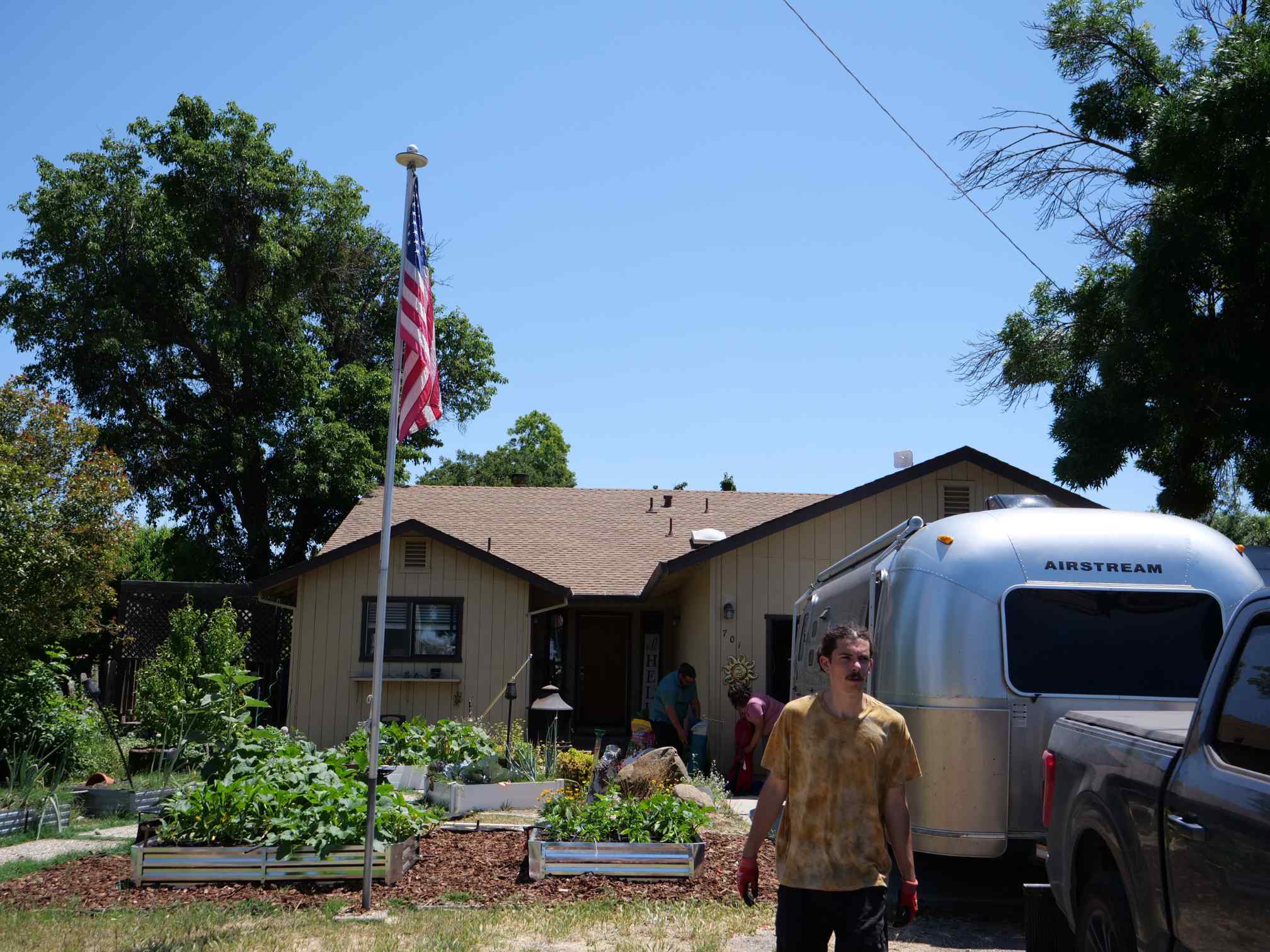Debunking Boondocking Myths, Part #2
Link to Part # 1 in the series (Debunking Boondocking Myths #1 through #5 ).
Myth #6: There are so many people boondocking now, there’s no longer any peace and quiet in it.
Not true. We boondock in amazing places in peak season with no one else in earshot.
Like at Valley of the Gods, Utah (that’s Monument Valley in the distance.)
At this forested location just outside Yosemite National Park, we could hear a pine needle drop.
Even in areas where there are a lot of people (think Quartzsite in January and February), RVers leave much more space between “sites” than in campgrounds and RV parks, where sites are designated. And, if you’re willing to drive just a little bit farther, you can claim a spot away from the fray. Although there are few rules, and no campground management to enforce quiet hours, most experienced boondockers use common sense and follow the unwritten rules of boondocking etiquette.
Respectful space between RVs at this popular BLM boondocking area on the outskirts of Tucson, AZ
Myth #7: You have to find places where others have camped before you.
It’s true that public land agencies ask us to camp in pre-used sites to avoid trampling or scarring fragile natural environments, but there are times and places where we can’t find any. We’ve been in this position a couple of times when we were passing through parts of the country that aren’t popular destinations. We knew we were on public land and that boondocking was permitted, so we settled on a flat clearing that we could pull into just far enough to be off the road but avoid any real damage to the vegetation.
Where they exist, pre-existing sites are always preferable. If someone created a campsite in a particular spot, it’s likely for a reason – the best view, best access, shade available, etc. Camping in those sites is just easier as well. Why build a fire ring when someone has already done it? Why risk driving on a questionable surface? But it’s nice to know that, in most public land districts, there’s no penalty if you park elsewhere when there are no previously-used sites in the area.
Myth #8: Boondocking is for people who are too cheap to pay for camping.
Most RVers choose to boondock only some of the time. Often they alternate it with stays in (fairly expensive) campgrounds or RV resorts, which should prove right there that they’re not too cheap to pay. The savings on nights when they boondock help to offset the cost of the nights they pay for camping. RVers who spend a lot of time on the road like to add variety to their travels by including many types of experiences. They know there are many other benefits to boondocking aside from saving money.
Myth #9: You’ll have homeless people for neighbors.
Not true in most locations. But it can be true near North America’s largest cities or if you include full-time RVers, who are “homeless by choice”.
Of course, the word “homeless” commonly brings to mind a different picture: panhandling, poor hygiene, addictions, and personality disorders. The most likely location to find this element is near the largest cities such as Phoenix, Los Angeles, Houston. Walmart parking lots in mid-size cities and towns within an hour’s drive of the major city are prime locations – towns large enough to offer all supplies and services, yet small enough to be easily navigable. It’s pretty unlikely you’ll encounter anyone who is “homeless by necessity” when you’re boondocking in a location that requires spending $10 or more for fuel to drive to the nearest town and back.
But even the homeless by necessity are often excellent neighbors. To them, camping is more appealing than most other choices and could be a temporary measure until they get back on their feet. They’re very unlikely to bother neighboring campers because they want to remain quietly below the radar. Most public lands have a 2-week maximum-stay rule before campers must move down the road at least 20 or 30 miles. By remaining unnoticed, they may be able to stretch that time a bit longer.
Myth #10: In densely populated areas, the only boondocking option is a Walmart or other retail parking lot.
There are many other options, including:
- You can request to stay for free on private property owned by our wonderful Boondockers Welcome hosts.
- You can ask permission to park overnight in a private lot of a restaurant or other business where you’ve spent money.
- Talk to locals and ask for suggestions. They may even invite you to park in their driveway! (It’s happened to us.)
- You can stay at wineries, farms, and museums with a Harvest Hosts membership.
- Some town parks offer free or low-cost boondocking.
- Attending a town festival or special event? Officials may ignore overnight parking infractions during the event.
- If you’re stealthy enough you might get away with spending the night in a 24-hour parking lot. We once spent the night in the parking garage where we caught the train into Washington DC. Carpool lots can be a good bet, too.
- Online resources like the Days End Directory (for Escapee RV club members), Allstays, Campendium, iOverlander, and Overnight RV Parking list crowd-sourced boondocking locations.
- You can pay to boondock (if that’s still called boondocking?) through sites like RVwithMe.
- Or maybe you’re lucky enough to have relatives or friends who would welcome you.
And you thought you didn’t have many options!
Check back soon for Part 3, dispelling more boondocking myths.
Learn More About Boondockers Welcome
We promise not to spam you!








This is a very well-written article. I have been looked down upon as a homeless person while boondocking. I am not homeless, I am retired and choose to travel the country dry camping, boondocking, dispersed camping (whatever you want to call it) in my homemade RV. I converted the step van that I used for the business that I retired from into what I think is a very well-equipped and elegant craftsman RV. However, it is not a $150k rig that is less than 10 years old. Therefore I am not welcome to stay at RV “Resorts” and I never expected to stay at such places. Instead, when not boondocking, I stay at state parks that have hookups and amenities as well as BLM campgrounds, Army Corp of Engineer campgrounds, Forest Service Campgrounds, and National Park campgrounds. I also stay at motels and hotels from time to time when I am in an urban area. I have yet to try a Boodockers Welcome or Harvest Hosts site as yet but am sure that I will. Thank you so much for writing this fine article.
We look forward to welcoming you to the Boondockers Welcome community!
Treatment of enlarged prostate with interventional radiology is a modern procedure that aims to reduce the size of the enlarged prostate and improve associated symptoms without the need for traditional surgery.
تضخم البروستاتا
Optimax inverter air conditioner provides an excellent cooling experience without annoying noise and even distribution of air in the room.
تكييف كاريير
يوفر تكييف أوبتيماكس إنفرتر تجربة تبريد متميزة بدون ضوضاء مزعجة وتوزيع متساوٍ الهواء في الغرفة. كما يتميز بقدرته على التكيف مع التغيرات في درجات الحرارة بسرعة وكفاءة، مما يجعله خيارًا مثاليًا للمناخات المتغيرة.
تكييف كاريير 2.25 حصان
Nestled between a bustling kyrgyzstan city and modern conveniences, Osh University has a rich history. Our university, which is situated in a multicultural area, provides a distinctive learning atmosphere that enhances the educational experience for students. Amidst the alluring beauty of Kyrgyzstan's capital, put your trust in Osh University to deliver an outstanding education.
学术诚信挑战是网课代上 http://www.hotessay.net/our_service5.php 服务面临的主要问题之一。学术诚信是教育体系的基石,任何学术不端行为都会对整个学术界和社会造成负面影响。网课代上服务直接破坏了学生的学术诚信,导致学生没有真正掌握知识和技能。此外,使用代修服务的学生可能会在未来的学术和职业生涯中遇到更多问题,因为他们缺乏真实的学习经验和能力。学术机构和教育者需要采取有效措施,加强对学术诚信的教育和监管。
what a topic
علاج تضخم البروستاتا
what a topic
رسم قلب بالمنزل